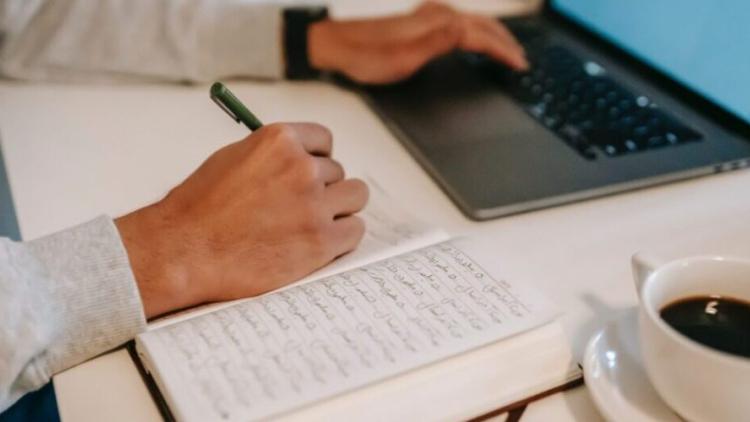MA Global Diplomacy: MENA (Online)


Key information
- Duration
- 2-years (Max. 3-years)
- Start of programme
- April / October
- Attendance mode
- Online Learning (part-time)
- Fees
-
MA/MSc: £12,000
PGDip/PGCert: available as exit awards. - Entry requirements
-
A minimum upper second class honours degree (or equivalent). We welcome applications from academically strong individuals from a wide variety of fields and backgrounds. Candidates with a lower class degree but with degree-relevant work experience may be considered.
Course overview
The MA Global Diplomacy: MENA programme will enable you to deepen your understanding of international affairs and contemporary diplomatic practice with a regional focus on Middle East and North Africa.
This MA programme will give you a theoretically and historically informed understanding of the practice of international diplomacy, broadly conceived, and its applications in Middle East and North Africa.
Research is a key component of this programme and upon completion students will have the skills to:
- think critically, with reference to theoretical and empirical (historical and/or contemporary) content about international studies, diplomacy, and political economy in Middle East and North Africa
- develop and practice the ability to see – and to comment on – the strengths and the weaknesses of others’ ideas and arguments.
This MA programme is delivered by the Centre for International Studies and Diplomacy (CISD) using a combination of multi-disciplinary teaching, cutting-edge research and public discussion of diplomacy and international politics in a globalised world.
This programme is available as a Masters, Postgraduate Diploma and Postgraduate Certificate level. Please note, The PG Certificate and PG Diploma are offered as exit awards, you must apply for the MA degree and then request to exit when you have the correct credits
Who should apply
This course is for those engaged in or embarking on a career in diplomatic or related fields in Middle East and North Africa requiring international expertise in government, not-for-profit, corporate or academic environments.
By studying online, students will also have the flexibility to integrate studies into working life without having to take a career break.
Structure
Masters
This pathway requires students to take two core and two elective modules. To meet the requirements of the programme, students also need to complete four research mini modules which make up the dissertation element of the Masters Degree:
- 2 Core modules (30 credits each)
- 1 Diplomacy Elective module (30 credits)
- 1 Regional Elective module (30 credits)
- 4 Research mini modules (Dissertation), on a topic related to Middle East & North Africa (60 credits)
(180 credits in total)
PG Diploma
- 2 Core modules (30 credits each)
- 1 Diplomacy Elective module (30 credits)
- 1 Regional Elective module (30 credits)
- 2 Research mini modules
(120 credits in total)
PG Certificate
- 2 Core modules (30 credits each)
- 2 Research mini modules
(60 credits it total)
Modules from other departments: Students on this MA programme may take one module from other departments.
Please note that all modules are subject to availability from session to session.
Important notice
The information on the programme page reflects the intended programme structure against the given academic session. If you are a current student you can find structure information on the previous year link at the top of the page or through your Department.
Please read the important notice regarding changes to programmes and modules.
Teaching and learning
This programme is taught 100% online through our Virtual Learning Environmnet (VLE).
Virtual Learning Environment (VLE)
In the VLE you will have access to learning materials and course resources anytime so you can fit your studies around your existing commitments. For each module, students will be provided with access, through the SOAS Library, to all necessary materials from a range of appropriate sources.
A key component of the student experience will be peer to peer learning, with students enrolled in discussion forums.
Study timetable
In addition to a dedicated Associate Tutor, a Study Timetable is provided for each module and for the overall programme to help you to organise your time.
The programme is broken down into two study sessions per year. Each subject module lasts 16 weeks, followed by a research mini module lasting 8 weeks.
Sample study timetable
| Activity | Duration |
|---|---|
| Substantive module | 16 weeks |
| Reading week | 2 weeks |
| Research mini module | 8 weeks |
| Reading week | 2 weeks |
Assessment
Each module is assessed by five written online assessments (‘e-tivities’*) comprising of 30%, the remaining 70% is formed of a 5,000 word essay.The e-tivities provide formative and summative feedback to students as a means of monitoring their progress and encouraging areas in which they can improve.
* An 'e-tivity' is a framework for online, active and interactive learning following a format that states clearly to the students its 'Purpose'; the 'Task' at hand; the contribution or 'Response' type; and the 'Outcome' (Salmon, G. (2002) E-tivities: The Key to Active Online Learning, New York and London: Routledge Falmer.)
Research training and dissertation
Research training is a key feature of this programme, the dissertation module is presented in four development parts, which will follow each of your module sessions. Research modules one and three are formative modules only, and are not assessed.
The dissertation is assessed by the submission of a written dissertation of no more than 15,000 words, excluding the bibliography and appendices, which will account for 85% of the mark awarded for the module (research module four). The remaining 15% of the module mark will be based on the mark obtained for a 1,500 word research proposal (research module two).
The research proposal is compulsory for students going on to do a PGDip or MA; MA students must submit a dissertation at the end of research module four.
Fees and funding
| MA/MSc | PG Diploma* | PG Certificate* |
|---|---|---|
| £12,000 | £12,000 | £ 6,000 |
* The PG Certificate and PG Diploma are both exit awards and cannot be applied for directly. For further information please contact the team at glodipadmin@soas.ac.uk
Note this is a new fee structure, students will continue their programme on the same fee structure throughout.
See online and distance learning fees for further information.
Pay as you learn
Our distance learning programmes can be paid in full at the time of enrolment or on a pay as you learn basis. Pay as you learn means you pay for modules prior to enrolment (£3,000).
Postgraduate loans
If you have been a resident in England for 3 years you may be eligible. For more information, please see postgraduate funding and finance.
Employment
Students from SOAS’s Centre for International Studies and Diplomacy (CISD) develop an in-depth understanding of international affairs, contemporary diplomatic practice and policy-makers. Graduates leave with a portfolio of transferable skills such as critical analysis, problem solving, negotiation and communication, all of which are valued by employers across a number of sectors.
Recent CISD graduates have been hired by:
- Department for Business, Energy and Industrial Strategy
- Ernst & Young
- European Centre for Democracy and Human Rights
- Government of India
- International Rescue Committee
- Medical Aid for Palestinians
- NHS
- The Commonwealth
- UK National Commission for UNESCO
- UNHCR
- United Nations
- World Food Programme
Find out about our Careers Service.





